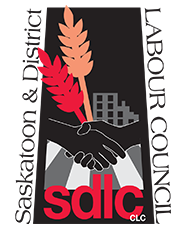Gerrand Rath Johnson LLP
Memo
To: SGEU PS/GE Bargaining Committee
From: Rick Engel, K.C. and Samuel Schonhoffer
cc: Tracey Sauer, SGEU President
Date: January 23, 2023
Re: SGEU Charter Challenge of “Essential Services” Provisions in Part VII of the Saskatchewan Employment Act
Background
In 2008 the Wall Government enacted the Public Service Essential Services Act. This legislation allowed a public sector employer to designate certain employees as essential thus preventing them from going on strike. Moreover, the Act did not provide a meaningful alternative to the right to strike. There was no process of interest arbitration to settle the terms and conditions of the Collective Bargaining Agreement through a hearing in front of an impartial board of arbitration.
In 2015, in SFL v. Saskatchewan, 2015 SCC 4, the Supreme Court of Canada held that the Public Service Essential Services Act breached s. 2(d), Freedom of Association of the Canadian Charter of Rights and Freedoms. In addition, even though the Public Service Essential Services Act was based on the pressing and substantial objective of maintaining essential services, the Court ruled it was not saved by s. 1 primarily because the unilateral designation model was not minimally impairing of the right to strike.
In response to its devastating loss at the Supreme Court of Canada, the Saskatchewan Party Government passed a new essential services process in 2015 which is now contained in Part VII of the Saskatchewan Employment Act.
2021 SGEU Statement of Claim
Clearly the SFL case means the “mechanisms” employed by essential services legislation are subject to Charter scrutiny both as a breach of s. 2(d) and as a process that does not minimally impair the right to strike under s. 1 of the Charter.
Similar to the process set out in the Public Service Essential Services Act, Part VII of the Saskatchewan Employment Act primarily employs a designated strike model, in the sense that the union must attempt to reach a Collective Bargaining Agreement through a limited strike (while the essential service employees are working at their regular jobs) before it can even apply to the Saskatchewan Labour Relations Board for interest arbitration. Even then, interest arbitration will not be ordered unless the union can show there has been a “substantial interference” with its right to strike. At its essence, SGEU’s claim is simply that this new mechanism also doesn’t work.
In the Statement of Claim, rather than relying purely on the legal characteristics of Part VII, SGEU’s position is based on the union’s considerable experience that the new mechanism is not functional in practice. The union will show through its evidence at trial that bargaining over essential services (which only begins after bargaining of the Collective Bargaining Agreement has already reached an impasse) has been rife with delay, lack of definitions, deficient details or outdated information of the job descriptions of essential service employees, and disputes over the actual duties to be performed by essential service employees in the event of a strike. However, SGEU’s position is not driven by technical arguments about these features. The central problem is that the overall scheme has not worked in practice for SGEU. Most critically, because of the problems associated with the essential services process, SGEU has not been in a legal strike position for well over a decade. And even if it could overcome this obstacle, the crucial momentum necessary to conduct a meaningful strike is frittered away through this unworkable process.
All union negotiators know that in conducting a strike, timing is crucial. To stand any chance of success, the union has to be able to commence a strike immediately after the parties have reached an impasse in bargaining. In addition, the union needs to be able to withdraw services that create the greatest vulnerability for the employer. It is at this point that the members are most willing to join the picket line, forego their pay cheques, and shut down the workplace until the parties are ready to reach a deal.
But under Part VII, this is not what happens. At the point of impasse, the union must change gears and conduct prolonged and frustrating negotiations over essential services. Not only do employees lose their momentum resulting from the impasse in regular bargaining, but now the new topic in essential services bargaining doesn’t even directly concern them. It is a topic that primarily benefits the employer. This process has turned out to be a bad idea right from the start. Under both the Public Service Essential Services Act since 2008, and Part VII since 2015, SGEU has never been able to successfully negotiate an Essential Services Agreement and thus has never been in a legal strike position for the past 15 years. Consequently, SGEU was forced to agree to a collective agreement in the last round of bargaining because it had no credible ability to mount a viable strike or even strike at all.
Outcome
SGEU will be arguing in Court that the Federal Public Service Labour Relations Act that is applicable to the Federal Government public service is the simplest and most just resolution of these problems. The federal legislation provides the union (not the Labour Board or the Government) with the ability to elect interest arbitration at the very beginning of the collective bargaining cycle. This option to elect either a designated strike or interest arbitration must be made by the union on behalf of its members. After all, they are the ones who would actually go on strike or exchange this right for a meaningful alternative.
The early election is minimally impairing of the right to strike in the sense it equally satisfies the objective of maintaining essential services and provides a meaningful substitute to the right to strike. It does not require an onerous (and potentially pointless) process of negotiation and litigation over the scope of essential services.
The alternative is to try to reform the designation process to try to remedy the delays, the timing of the essential services bargaining, and the requirement of the union to convince the Labour Board a designated strike is a “substantial interference” with the right to strike. The object of the reforms would be to ameliorate the problems an early election simply avoids. Framed in this way, it becomes obvious the early election by the union is a minimal impairment of the employees’ right to strike. Further, there does not appear to be any justification for complex reform in pursuit of the same outcome as a simple alternative.
In the lawsuit, SGEU has filed its Statement of Claim and the Government has filed a Statement of Defense. The parties are proceeding through the formal steps of the litigation process. We expect the trial will take place in late 2023 or more likely 2024.





